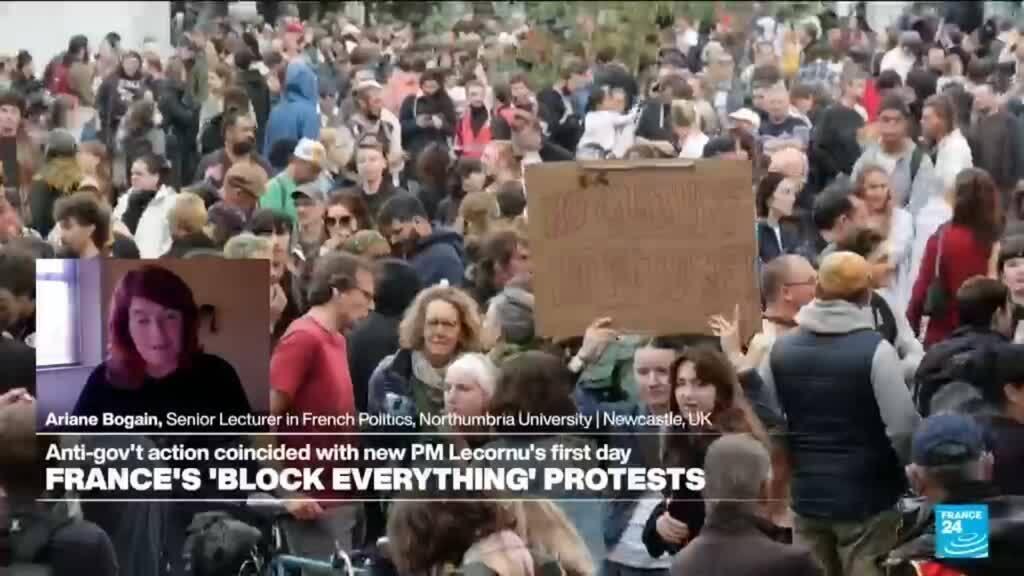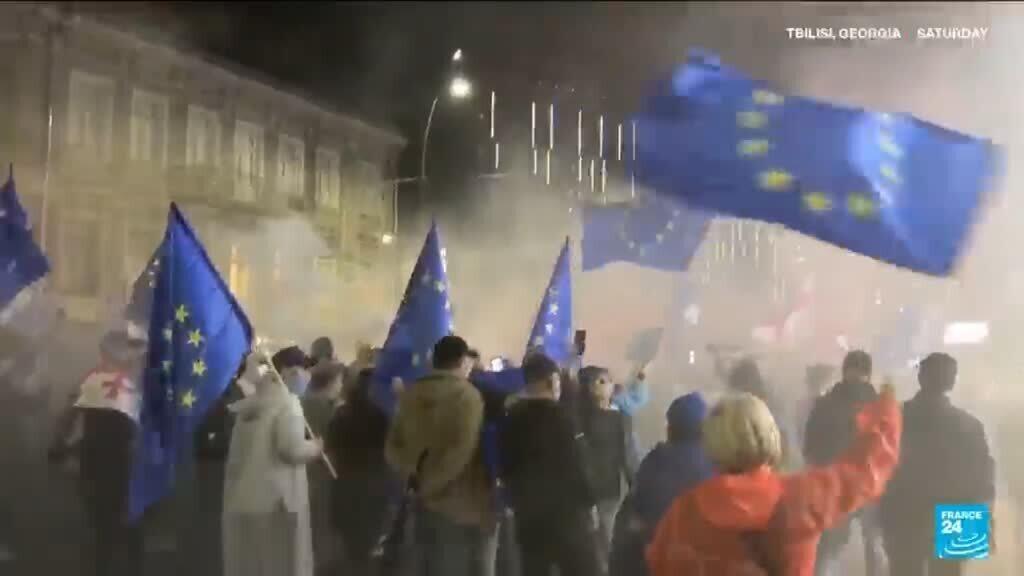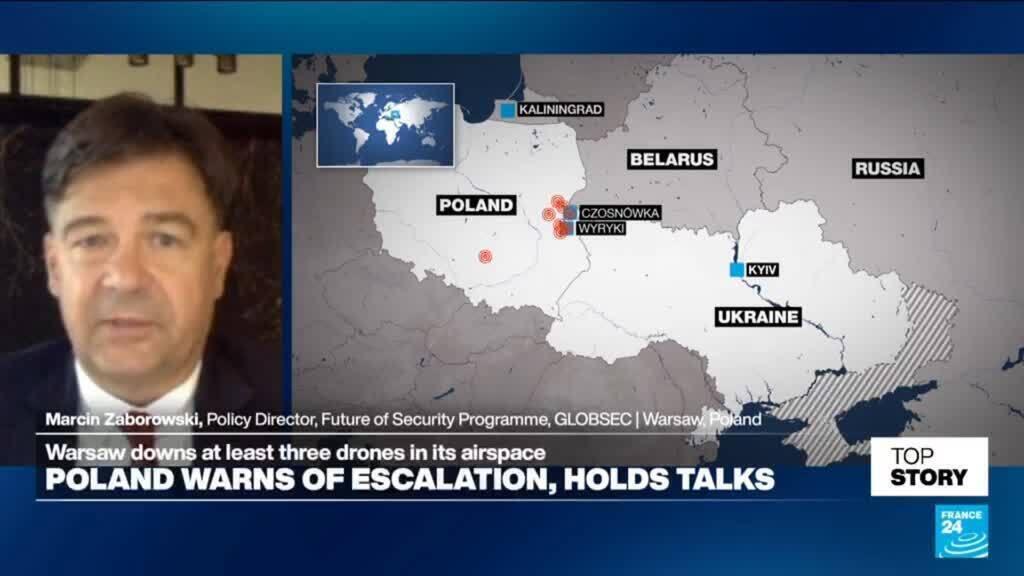On Wednesday, France witnessed a significant day of anti-government protests, which saw major cities engulfed in smoke, barricades ablaze, and the air thick with tear gas. This nationwide mobilization, dubbed the “Block Everything” campaign, emerged in response to widespread discontent over budget cuts and ongoing political instability. The demonstrations posed a substantial challenge to President Emmanuel Macron, transforming the first day of Sébastien Lecornu as prime minister into a tumultuous experience.
The protests, which spread across various cities in France, reflected deep-rooted frustrations among the populace regarding the government’s fiscal policies and decisions that many citizens perceive as detrimental to their livelihoods. As protestors took to the streets, clashes erupted between demonstrators and law enforcement, resulting in the use of tear gas by police to disperse crowds. The scenes of chaos were emblematic of a larger unrest brewing within the nation, as citizen discontent simmered over budgetary constraints that affect public services and welfare.
The “Block Everything” movement signifies more than just spontaneous unrest; it highlights a cohesive call against austerity measures that have negatively impacted many facets of French life. In a nation marked by its revolutionary spirit and history of social mobilization, citizens are rallying together to express their grievances. Protesters not only oppose budget cuts but also highlight a growing mistrust in political leadership at a time when France is facing mounting challenges including economic pressures and social inequalities.
This day of protests could be seen as a litmus test for newly appointed Prime Minister Sébastien Lecornu, who faced intense scrutiny from both political opponents and the general public. Lecornu, stepping into his role at a time of crisis, was thrust into the limelight as he navigated the complex dynamics between government policy and public response. The challenges he faces are significant, as he must balance fiscal responsibility with the need for public support and trust.
In analyzing the implications of these protests, Ariane Bogain, a Senior Lecturer in French Politics at Northumbria University, suggested that the intensity of the backlash against Macron’s government signals a critical juncture in French politics. The protestors’ rallying cry emphasizes a broader discontent that has the potential to influence future elections and policy decisions in France. The government's ability to respond effectively to these concerns may determine its political capital in the coming months, especially as France approaches significant elections and must confront simmering tensions within its diverse population.
As the smoke cleared from the streets, it became clear that the events of this day would not only resonate with activists and political analysts but also set the stage for ongoing dialogues about governance, representation, and citizen dissatisfaction in France. The outcome of this unrest may very well shape the narrative of French politics in the near future, as leaders grapple with the urgent need to heed the voices of their constituents amidst rising dissent.












